Robin Storey's Blog
December 27, 2025
Should I Write More Than One Memoir?
This post was written by Robin Storey.
You may be struggling with the idea of writing just one memoir, so the question, ‘Should I write more than one memoir?’ may have never entered your head.
But if you have enough material for more than one book, my short answer to that question is a resounding ‘Yes!’
Because a memoir is only about a part or parts of your life, it lends itself to multiple iterations.
If you want further information about what a memoir is, read my blog post Memoir vs Life Story – Which To Write.
Table of Contents1. Divide Your Life Into Sections2. Write in Themes3. Write Each Chapter On A Different Topic4. The Sky Is The Limit5. So, By All Means, Write More Than One MemoirDivide Your Life Into SectionsYou may want to divide your life into chronological sections, writing a memoir about each one.
For example, acclaimed author Mary Karr wrote three memoirs – The Liars Club, which documented her difficult, impoverished childhood, Cherry, an account of her tumultuous teen years and sexual coming of age and Lit, about her descent into alcoholism and insanity as an adult, and clawing her way back out.
If you’re choosing this format, make sure that your memoirs are not just an account of events, but there is also a proper narrative arc - theme or themes that tie all the events together, character development (yours, and perhaps, others’) and a resolution at the end.
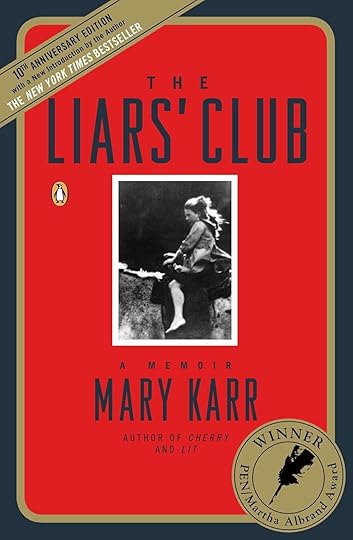 Write in Themes
Write in ThemesYou can divide your life according to themes.
For example, a memoir about your career and how you’ve achieved success, another about your relationships and what you’ve learned from them, another about travel and how it has expanded your mind, and so on.
Within each memoir, there will be events that are not necessarily chronological, and there will be large gaps in time, because you’re only writing about certain parts of your life.
The skill in writing these memoirs is to make these events flow seamlessly into a cohesive narrative.
You also need to make sure you only write about what’s relevant to the theme, and not be tempted to go off on a tangent about another part of your life - which, while it may be important in terms of your whole life story, has nothing to do with the topic you’re writing about.
Write Each Chapter On A Different TopicOr you can write about different themes within the same memoir, with each chapter on a different topic that ties in with those themes.
Billy Connolly is a prime example – in his books Windswept and Interesting, Rambling Man and Tall Tales and Wee Stories, each chapter is about a different subject.
For example, Rambling Man is, as the title suggests, about his life on the road. In the prologue, he discusses his concept of a rambling man – not only that he is constantly travelling, but he also possesses certain qualities – he doesn’t owe anyone anything, is often self-educated, always curious and learning and has a desire to be free of responsibilities.
(And a rambling man can also be a woman).
Each chapter is about a different event or events, not necessarily chronological, but they all relate to the theme of rambling and the qualities of a rambling man.
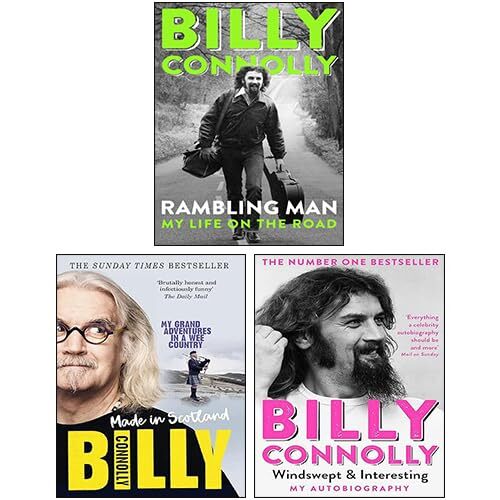 The Sky Is The Limit
The Sky Is The LimitYou can see how, in writing in themes, you could write endless memoirs, if you have enough material.
I expound on writing in themes in my blog post How Many Ways Can You Write A Memoir?
Other famous authors who’ve written multiple memoirs include Frank McCourt, Elizabeth Gilbert, Janet Frame and Maya Angelou.
In fact, Maya takes the cake for being one of the most prolific memoir writers – she’s written seven, each one about a different period of her life.
So, By All Means, Write More Than One MemoirAnd if I can help you, I will.
If you’d like to write a memoir, or memoirs, but don’t know where to begin, I can help you, and even write it for you.
Click the button below, enter your details and I’ll reply as soon as I can.
The post Should I Write More Than One Memoir? appeared first on Robin Storey.
November 12, 2025
Do Memoir Ghostwriters Write Their Own Memoirs
This post was written by Robin Storey.
Yesterday I was asked, ‘Do memoir ghostwriters write their own memoirs?’.
It’s in the same vein as ‘Do mechanics service their own cars?’ or ‘Do doctors diagnose their own illnesses?’
To the first question, I can’t answer for other ghostwriters, but for myself, the answer is, happily, ‘yes.’
I say happily, because I think writing their own memoir gives a ghostwriter a good insight into what the process is like for the client whose memoir they’re writing.
For instance, when writing your memoir, you discover that:
Sometimes, there are events in your life that you could swear happened, or people who said or did things stand out clearly in your memory.
Yet when you dig deeper, you find out that your memory has played tricks on you.
This is particularly the case with events or people from long ago, because your memories get overlaid by other memories, and can be distorted by the emotions you were feeling at the time.
If you’re talking about real-life events from the past, particularly in a historical context, it’s a good idea to make sure you have the correct facts.
Where possible, I always check the historical facts that clients give me, because it’s amazing how often they are mistaken about a particular world event.
 You May Experience Strong Emotions
You May Experience Strong EmotionsThis is probably inevitable when you are writing about distressing events in your life.
No matter how much therapy you’ve done or how well you think you’ve come to terms with them, there are often events in your life that continue to make you sad/angry/frustrated when you think about them.
The good news is, this will add to the authenticity of your writing, as long as you don’t go overboard and spill everything out as if you were on the psychiatrist’s couch.
One of my clients, Bob, who served in New Guinea in WW11, told me about a little dog that had come out of nowhere while he was there and befriended him, following him everywhere and sleeping with him at night.
At the end of the war, when it was time for Bob to be repatriated to Australia, the dog had to be euthanised, as it wasn’t allowed on board the ship.
Over 70 years later, as Bob was telling me this story, tears were rolling down his cheeks.
If you’re writing about trauma – for example, domestic violence or sexual abuse – it’s a good idea to have some distance from it before writing about it.
You need time, often years, to process the emotions, and ideally, to have therapy to help you learn to manage them.
If you find yourself becoming distressed while writing about your trauma, it’s best to stop, get help and give yourself more time.
On the other hand, writing about your emotions can be cathartic. While writing my memoir Making the Breast of It, about my diagnosis and treatment of breast cancer, I found that writing about my fear of death in a humorous way helped me to deal with it, and entertained the reader as well.
 It's Important To Be Authentic
It's Important To Be AuthenticObviously, you want the reader to enjoy your memoir. And you also want to connect with them, to communicate an idea or theme to them and hopefully, make an impact on them in some way.
The most effective way to do this is to be authentic. In other words, be yourself – warts and all.
Don’t hide your flaws or try to make excuses for your less-than-ideal behaviour. The reader will see straight through it, because we all know there is not one perfect human on this planet, and it will turn them off.
We relate to people who are honest and open about their weaknesses, because we can see parallels in ourselves.
So we’re much more likely to trust them, feel connected to them, and take on board what they’re telling us.
This doesn’t mean you have to be self-effacing, though. That’s just as irritating. You can give yourself credit where it’s deserved.
A well-written memoir will reveal how you’ve changed and grown as a result of your experiences, which may include how you’ve learned to overcome or manage your character flaws – very inspiring for those readers who share those flaws.
Being authentic also means writing in your own voice. In other words, write how you speak, don’t try to write to some idea of what you think ‘good writing’ is.
It will sound false and forced. If you see the world through a humorous lens, bring that out in your writing. If you have a philosophical frame of mind, express that, too.
The subtitle of my memoir Making the Breast of It was ‘Breast Cancer Stories of Humour and Joy.’
A few people told me they didn’t think breast cancer was a humorous or joyous subject. (None of these people had experienced breast cancer).
But that didn’t deter me. I am by nature an optimist and always see the funny side of any situation. It wouldn’t have been possible for me to write the memoir in any other way.
Baring yourself to the reader, warts and all, is scary. Because you really have no idea how people are going to react to your memoir, and you’re opening yourself up to judgement and negativity.
Author Edna St Vincent Millay was quoted as saying, ‘A person who publishes a book appears wilfully in public eye with his pants down.’
She was referring to any book, but this is especially true of a memoir.
But this is what vulnerability is all about. Laying it all out there and saying, ‘This is me.’ Readers will respect you for it, because chances are they’ve had similar experiences, thoughts and feelings and perhaps haven’t been brave enough to share them.
And let’s face it, you don’t have to write a memoir to be judged. We’ve all had the experience of being judged for things we’ve said or done.
The fear of judgement is invariably worse than the reality of it.
In my blog post Vulnerability In Writing Memoirs, I discuss this in more detail, and reveal a couple of episodes from my memoir in which I felt vulnerable revealing my thoughts and emotions.
 So, Do Ghostwriters Write Their Own Memoirs?
So, Do Ghostwriters Write Their Own Memoirs?Yes, yes they do.
Without a doubt, writing my own memoir has contributed to a greater understanding of and empathy with my clients.
Empathy is a necessity for a memoir ghostwriter, so if you’re thinking of hiring a ghostwriter to write your memoir or life story, I think a fair question would be, ‘Have you written your own memoir?’
The post Do Memoir Ghostwriters Write Their Own Memoirs appeared first on Robin Storey.
January 12, 2025
Would A Publisher Be Interested In My Memoir?
This post was written by Robin Storey.
Would a publisher be interested in my memoir?
It’s a question I’m asked a lot, as a ghostwriter of memoirs. My answer is, ‘It depends.’
Not very helpful, is it?
But there are so many factors and variables to take into account when thinking about submitting your memoir to publishers.
Here are the main ones to consider.
This is the most important factor, because the topic of your memoir is what sells it, and the publisher wants to be sure that it will attract a large enough readership to make it financially viable to publish.
Memoir has become a very popular genre - read my blog post Why Are Memoirs So Popular? - and is no longer the prerogative of celebrities.
Readers love to read about ordinary people like themselves who’ve had exciting adventures, achieved great things or overcome huge obstacles.
I highly recommend doing some initial market research to find out what memoirs have already been published on your topic.
You can do this by Googling ‘memoirs on…’ whatever your topic is and seeing what comes up.
You can also do the same in the search engines of large book retail sites such as Amazon and Kobo.
There are many common memoir topics – for example - grief, finding love, surviving a marriage break-up, living in a foreign country, overcoming addiction, just to name a few, that have already been written about extensively.
If your memoir is on a common topic, you need to have an angle or point of difference from the books already published, to interest a publisher.
For example, if your memoir was about your marriage breakup, which you dealt with by running away to the Amazon jungle and living with a native tribe for 12 months, that’s a point of difference that might interest a publisher.
It can be more subtle, though – perhaps your topic written from a different viewpoint from the norm might be enough.
For example, alcohol addiction written from the point of view of someone working in the alcohol industry, or drug addiction by an addiction counsellor.
Books sales, like any other product, are subject to trends. For example, since the #Me Too movement was founded in 2006, memoirs by women on sexual abuse by men in authority positions have become popular.
If you have a similar memoir, this could be to your advantage, particularly if, as mentioned above, you have a different scenario or angle from the usual.
However, it may also happen that the publishers you approach decide that the market is flooded with these memoirs, and that there’s too much competition in this niche for your book to make an impact.
The misery memoir is another example of trends. In the late 1990s to early 2000s, when memoir was starting to rise in popularity, misery memoirs – ie memoirs about childhood suffering and dysfunctional family life – were all the rage.
This was due in no small part to the popularity of Frank Mc Court’s memoir of his grim, poverty-stricken childhood in Ireland, Angela’s Ashes.
Now, misery memoirs have, for the most part, had their day. With a caveat.
In Australia, due to heightened public awareness of institutional abuse in churches and orphanages, and the Royal Commission into Institutional Responses to Child Sexual Abuse, completed in 2017, memoirs of abuse in these institutions have hit the market.
There have been similar enquiries in other western countries, such as the UK, and a corresponding rise of memoirs on this topic.
Not only are trends important for publishers to consider, but their size will also depend on their interest in your memoir.
Size Of The PublisherOn average, publishers take from 12 months to 2 years to publish a book, so they plan their publication schedules well ahead.
It stands to reason that the bigger the publisher, the more books they publish.
But there are only so many in each genre that they publish, so whereas a larger publisher might publish six memoirs in a year, a smaller might only publish one or two.
And if your memoir happens to be on the same theme as one they have already accepted for publication, or have recently published, they will refuse your memoir, no matter how much they like it, or how well-written it is.
Often, it comes down to timing.
Would a publisher be interested? You might want to ask these two harrassed looking individuals.
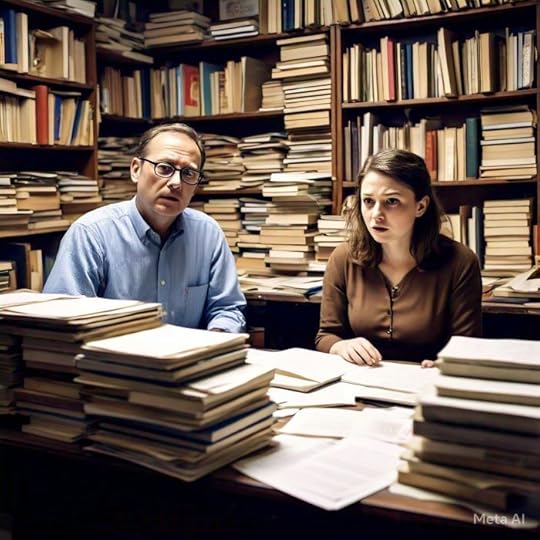 Memoir Genres
Memoir GenresThere are also genres within memoir, such as literary, self-development, military, travel.
It’s a good idea to go to the publisher’s website, find their list of books already published and check out the types of memoirs they prefer.
For example, a publisher who has published a lot of serious literary memoirs probably won’t be interested in your more frivolous memoir of your career as a rock singer.
Who you are does have a bearing on whether a publisher will be interested in your memoir.
If you’re a celebrity, or have a high profile in your community or in the media, that may pique their interest enough to at least read your memoir.
However, that’s only the first step. The other criteria still apply – it must be a well-written story on a topic they think will sell.
Having an online presence – ie a website, Facebook page and followers on at least a couple of social media sites is a definite plus.
The publisher will do some promotion for you, but you’re expected to do a lot of it yourself.
If you’re thinking of writing your life story or memoir but don’t want to do it yourself, I can help you.
Click on the button below to put in your name and email address, and I’ll reply as soon as possible.
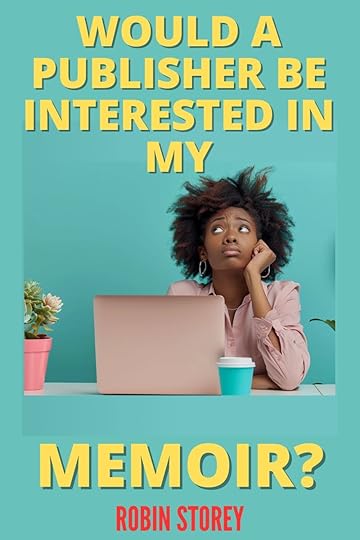
The post Would A Publisher Be Interested In My Memoir? appeared first on Robin Storey.
August 15, 2024
Memoir Vs Life Story: Which To Write
This post was written by Robin Storey.
I’m often asked the question, ‘Should I write a memoir or life story?’
What Is A Life Story?Although the two are often used interchangeably, they are not the same.
A life story is, as the name suggests, the story of your whole life, from birth to the present.
It’s also called an autobiography if you write it yourself, or a biography if someone else writes it.
A memoir is about a period of your life – it could be weeks, months or years – in which some event(s) occurred that changed your life.
Or it could cover the expanse of your whole life, but follow a theme, such as relationships or jobs you’ve had or travels you’ve done.
Therefore, only the parts of your life that are relevant to those themes will be included.
I’ve written more about the difference between autobiography and memoir in my blog post Memoir or Autobiography – What’s The Difference?
In it, I also give examples.
Which Should I Write?Knowing the difference between life stories and memoirs may be enough information for you to decide which one you want to write.
But if you’re still wondering, it all depends on your purpose for writing your story.
 Are You A Celebrity?
Are You A Celebrity?If you’re planning to publish your book for the general public to read, a life story may not be the best option.
Readers are usually only interested in reading the autobiographies of celebrities and high-profile people. So unless you’ve had an exceptionally unusual or interesting life and you’re a marketing genius, you probably won’t sell many copies.
But if you don’t care about selling lots of books and you still want to write and publish your life story for the public, by all means, go for it! You could be the exception to the rule.
Most of my life story clients have written their stories just for their family and maybe close friends.
It’s a wonderful legacy for future generations, and if you submit a copy of your book to the National Library of Australia, it becomes a living historical document.
I believe there is a similar process in other countries.
Memoirs are more popular with the general reading public because they are more focused than life stories – they’re usually about a challenge you’ve overcome that has changed you and your life.
Whatever you’re writing about, whether it be an adventure you’ve had or a goal you’ve achieved, there are obstacles along the way you’ve overcome.
If there aren’t, it’s not much of a story. One of the basic building blocks of any story, fact or fiction, is that there must be some sort of conflict, even it’s only internal conflict, that’s usually resolved in some way by the end.
If it’s not resolved, there has been some learning or character development along the way that has made you more able to cope with the conflict/challenge.
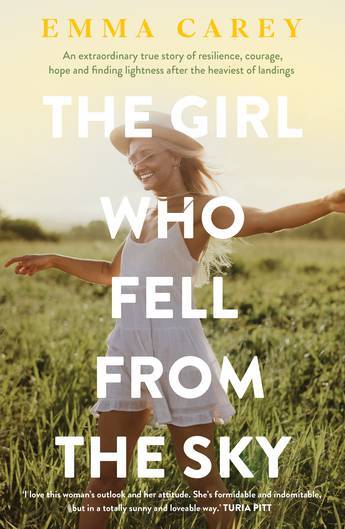 Memoirs Are Inspiring
Memoirs Are InspiringWe love to read about people who’ve overcome challenges, especially ones we’ve experienced ourselves.
Such memoirs inspire and motivate us.
In my blog post, Why Are Memoirs So Popular? I say, ‘Even when the memoir is not about a topic that is relevant to your situation, you can still find solace in it or be encouraged to take a giant leap into the unknown.’
So if your aim is to publish your story for the general public, a memoir is a better choice than a life story.
Having decided on your topic, you must make sure that your story keeps to the theme.
It’s difficult sometimes, but you must be ruthless in eliminating events and information that aren’t relevant to the topic you’re writing about.
But there’s nothing to stop you writing multiple memoirs about your life, with each one on a different topic.
Many famous authors – for example, Mary Karr and Frank McCourt - have done so.
In this article, Australian author Krissy Kneen discusses writing multiple memoirs.
If you’re thinking of writing your life story or memoir but don’t want to do it yourself, I can help you.
Click on the button below to put in your name and email address, and I’ll reply as soon as possible.
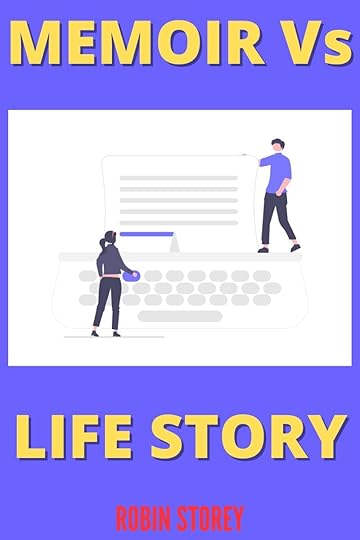
The post Memoir Vs Life Story: Which To Write appeared first on Robin Storey.
May 31, 2024
Short Memoir Stories
This post was written by Robin Storey.
Writing your memoir can be a daunting experience, and starting with short memoir stories can be an effective way to get in the groove and build up your memoir-writing muscles.
Table of Contents1. A Mini Memoir2. Great Writing Training3. What Will I Write About?4. What Next?5. Short Memoir Competitions6. Personal Essays7. It's All Practice8. Short Story Memoirs9. How Can I Help You?A Mini MemoirIt’s also easier, and certainly less time-consuming, to write 2500 words than 75 000 words.
However, a memoir short story still needs to contain the same elements as a full-length memoir – essentially, it’s a mini memoir.
It can be anywhere from 1000 to 10 000 words and must have a narrative arc (beginning, middle and end), a hook (the premise that grabs the reader’s attention, usually the first line) and a resolution, which includes some sort of change or development of the main character, which is you.
In fiction writing, as I have found out myself, writing short stories is great training for writing novels, and it’s a similar experience in memoir writing.
Having a shorter word count means you learn to be very economical with your word use; to convey meaning and emotion with action, dialogue and short punchy phrases rather than long, detailed descriptions.
These are all important skills for writing a full-length memoir, ensuring that you’re not wandering off track into irrelevant material, and that you’re keeping the reader engaged throughout the book.
 What Will I Write About?
What Will I Write About?You may well be asking this question, as you ponder your memoir short story. Pick an experience you’ve had that incorporates all the above narrative elements.
It doesn’t have to be exciting or dramatic; it can be an ordinary, everyday experience.
It can take place during one day or over weeks or months, and the most essential element is that it changed you in some way – your behaviour, your attitude towards something or someone, your view of the world or your beliefs, your relationship with someone or several people.
Once you’ve got the hang of writing memoir short stories, you might like to try your luck with publication. If you can win a prize in a competition and/or have one published in an anthology, you know you’re on the right track.
Short Memoir CompetitionsShort Memoir Prize Fish Publishing
The competition is run annually. It is currently closed for 2024, but will re-open near the end of the year for 2025.
Anthology Personal Memoir Competition
This is a good one to start with – the word limit is 1500. It closes on 31 August 2024.
Tales2Inspire runs regular competitions for short memoir stories to be published in their anthologies. The theme for the latest one is Happiness and it closes on 31 August 2024.
Writing site Reedsy provides a list of Best Memoir Writing Contests in 2024
There are many opportunities to enter short memoir stories in these contests, and even though some of them have already closed for this year, you will find others in the list that are still open.
If you’re not keen on competitions, there are many publications that invite year-round submissions for personal essays.
Personal essays are very similar to short memoir stories. Both are a ‘slice of life’, but essays usually refer to that event in the context of broader social issues, or particular philosophies, values and beliefs.
In other words, the writer is relating their experiences to the collective experiences of mankind in general.
Here’s an example of a well-written personal essay. The Wild Sublime Body by Melissa Febos.
If you want to explore essay writing further, here’s a list of 30 publications that you can submit personal essays to – and they even pay you!.
Even if you don’t want to enter competitions or write personal essays, writing memoir short stories is a great learning tool. And you can even write your entire memoir as a series of short stories or essays.
However, you still need to have an overarching theme and a way of linking the stories to each other to form a cohesive narrative, so that it’s not just a disparate collection of unrelated stories.
Here are some memoirs that have been written as a series of essays or short stories.
Managing Expectations - A Memoir in Essays by Minnie Driver.
Scenes from the life of actor Minnie Driver, and how things not working out, actually caused them to work out in the end.
More about this book in my blog post How Many Ways Can You Write A Memoir?
I Miss You When I Blink: Essays by Mary Laura Philpott.
Thoughtful and humorous observations on the conflicting pressures of modern womanhood.
I Am, I Am, I Am by Maggie O’Farrell.
The stories of the author’s 17 brushes with death.
If you’d like to ask me about writing your memoir for you, I’d love to chat to you about it.
Click on the button below to put in your name and email address, and I’ll reply as soon as possible.
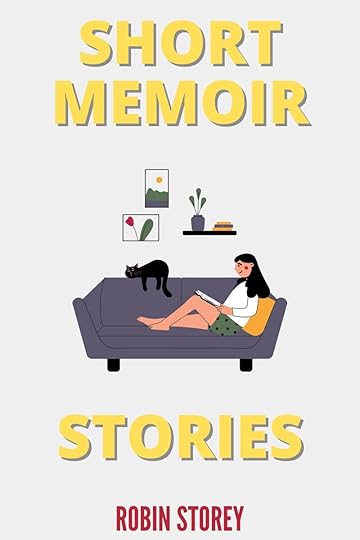
Header and Pinterest Image by Duckleap from Pixabay
The post Short Memoir Stories appeared first on Robin Storey.
April 9, 2024
Memoir Is All About Connection
This post was written by Robin Storey.
You will finallly understand the process of writing life stories when you realise that memoir is all about connection.
We humans have been telling each other stories since the first apelike creature tried to settle his hyperactive child into bed in his cave with the promise of his favourite bedtime story, The Hungry Sabretooth Tiger.
It’s our way of imparting information, making sense of the world, and connecting with each other. And learning how not to get eaten by a sabretooth tiger.
One of the main ingredients of a good story is emotional connection. Feeling connected to the characters is how we immerse ourselves in the story.
We don’t necessarily have to like all the characters – but in some way, we can understand their behaviour and empathise with them. Sometimes we love to hate a character, which is still an emotional connection, and the author has done his job well if he elicits that type of emotion in the reader.
In memoirs, the people are real, which for many readers, increases their authenticity. In my opinion there are three main reasons that people read memoirs:
To read about someone who’s had similar experiences to youTo read about someone who’s had similar experiences to someone you’re close toTo enjoy vicariously the life of someone you’re interested in (eg a celebrity memoir)I love to read memoirs about people in the medical industry – doctors, nurses etc– because even though I’m not a medical professional, I’m fascinated by the miracle of the human body and people who work in that field.
Connecting With MemoirsBecause the reader is engaging with a real person in a memoir, it’s important to be honest when writing your own memoir, and be just as ready to admit to your flaws and weaknesses as your strengths and successes.
We all have less than worthy thoughts, feelings and behaviour at times, and by revealing yours, readers will be able to relate to you.
This can be scary, because you’re opening yourself up to judgment by people who don’t know you. (As well as people who do know you, which can be scarier).
I’ve written about this necessity to be vulnerable in memoir writing in my blog post Vulnerability in Writing Memoirs.
It’s daunting enough revealing personal information to strangers when writing a memoir, and even more so when it’s face-to-face.
In 2023, the Queensland Writers Centre, as part of the state government’s Stay Connected Initiative, ran a series of personal story writing workshops for older, regional women to help relieve isolation and loneliness, and reduce the risk the homelessness, which has greatly increased for this demographic.
These women found so much acceptance, support and friendship through writing and telling stories from their lives.
There was healing, comfort and lots of laughter, as well as plans to meet regularly after the workshop to keep writing and nurturing the relationships.
 World Leaders Take Note
World Leaders Take NoteWhen it comes down to it, whatever your race, colour, gender or nationality, we humans are all more alike than we are different.
Reading stories of other people’s lives brings this home to us. I think all world leaders should be forced to attend a memoir writing workshop. Preferably several.
That’s my suggestion for world peace.
I truly believe that memoir is all about connection. It's why I now spend my time writing life stories and memoirs as a full-time occupation.
If you’d like to talk to me about writing your memoir, click the button below to enter your name and email, and I’ll reply as soon as possible.
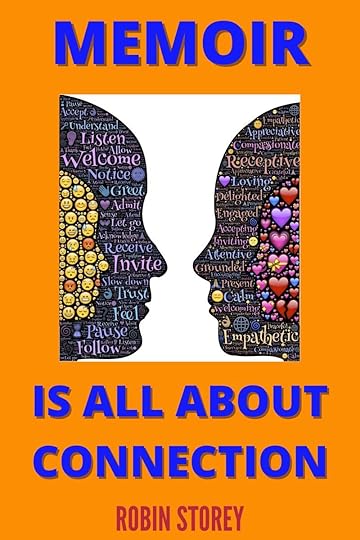
Header and Pinterest Image by John Hain from Pixabay
The post Memoir Is All About Connection appeared first on Robin Storey.
January 12, 2024
How I Became A Ghostwriter
This post was written by Robin Storey.
I’ve been asked many times how I became a ghostwriter. And I can see why, for two main reasons: Firstly, it’s not a common profession - although we ghostwriters are more widespread than you think, the nature of our occupation means we work behind the scenes.
And secondly, people don’t generally know a lot about it, so they’re interested to find out what attracted me to it.
Let’s face it, ghostwriting is not a profession young people consider when they’re trying to decide on a career path.
I’ve never once heard a teenager say, ‘I want to be a ghostwriter,’ when asked what their plans are after leaving school. And I can guarantee it’s not on any high school careers advisor’s list.
It’s probably just as well, because the one thing you need to be a ghostwriter, more than qualifications and natural writing talent, is writing experience.
All sorts; the more variety, the better.
Every single ghostwriter I know, me included, has never set out to be a ghostwriter, but has become one through or because of other writing professions.
It’s something you morph into, or, in my case, it’s an opportunity that comes up that you take out of curiosity.
In my memoir Making the Breast of It I describe how being diagnosed with breast cancer gave me the impetus to leave my stressful job as a probation and parole officer, and follow my dream of being a full-time writer.
At that stage, I’d also been a freelance writer for many years, fitting it around my job. I wrote articles for the print media (before digital took over), did some copywriting and in between all of that, I wrote short stories and novels
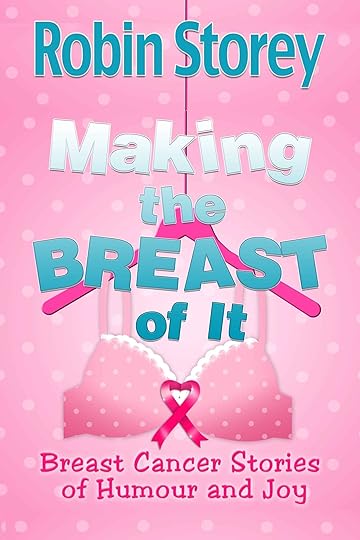 Taking A Leap Into Full-Time Writing
Taking A Leap Into Full-Time WritingMy real love was novel writing, so after finishing my cancer treatment and resigning from my job, I took a couple of years off to spend my time writing my novels.
Here’s more about my novels.
At the end of that time, I had to face reality. Much as I’d loved spending my days with my head in the world of my stories and characters, it wasn’t earning me a living. I had to find a job, a ‘real’ job.
I obtained a casual position with a private agency as a social support worker for the aged. My first job was visiting a delightful 76-year-old gentleman named Doug.
Doug was in the early stages of dementia and Doug’s partner, knowing I was a writer, asked me if I would write his life story before he lost his memory completely.
While I’d written many character profiles for magazines as a freelance writer, I’d never written a full life story, and wasn’t sure if it was something I’d enjoy.
But I agreed to do it, because it was such a worthwhile thing to do for the family. So every week when I visited Doug, we’d chat about his life and I’d record our conversations and transform them into chapters.
I found that I really enjoyed the process, and in retrospect, I don’t know why I doubted that I’d like it.
I’ve always been interested in other people’s lives – just call me a stickybeak!
Doug also loved reminiscing about the different events in his life; he’d had a varied life as a cheese maker, an officer in the Australian Army in the Civil Affairs Unit in Vietnam, a mature-aged student and then a scientist with a PhD, and the founder of an international education consultancy.
I completed his story by filling in the gaps in his memory with information from other family members.
We called the book Around The Ridges, and Doug’s stepdaughter created a small book with photos using an online program, and had a few copies printed out for family members.
The family loved the book and were very appreciative of my efforts, and I felt a great sense of satisfaction – not only creatively, but also because I’d helped them produce something lasting that was important to them.
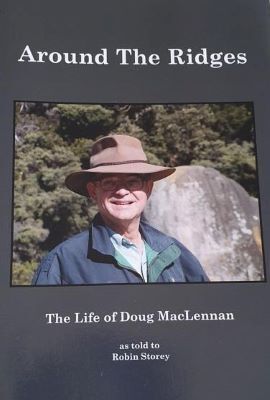 Then Came Bob...
Then Came Bob...Another resident of Doug’s aged care facility had heard about my writing his story, and approached me to ask if I could write his.
‘I’ve been looking for someone to write my story for 20 years,’ he said plaintively.
How could I refuse? That was Bob, a pioneer of the Queensland Ambulance Service, whose story I tell here on my website.
After I’d written Bob’s story, a couple more people approached me, and I realized I’d stumbled upon a popular and rapidly-growing writing niche.
The general population is recognizing the importance of telling their story for their family, or to chronicle their struggles and achievements to give hope and inspiration to others.
I set up my business as a ghostwriter and I haven’t looked back.
The work is consistent (in fact, I have a waiting list), I hear lots of fascinating stories and learn new stuff, I spend my days doing what I love, and I’m also helping others to make their mark on the world.
If you’ve got a story to tell and want someone to write it for you, I can help. Just click the button below, and then click on the big green button on my ghostwriter page. I look forward to speaking with you.
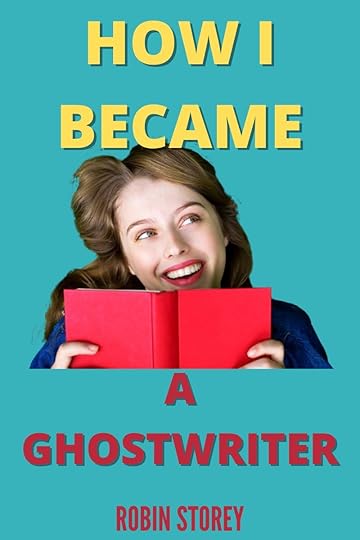
Share on Pinterest
The post How I Became A Ghostwriter appeared first on Robin Storey.
November 12, 2023
Spare Prince Harry Review
This post was written by Robin Storey.
Now that a lot of the furore has died down about Prince Harry’s memoir, Spare, I thought it might be a good time to post my review.
The title Spare refers to an aristocratic adage that an heir and a spare were needed to ensure the inheritance remained in the family if the heir should die.
In this case, Prince Harry is Prince Williams’ spare for the throne of England. However, since Prince William had his three children, Prince Harry has been bumped down from second in line to the throne to fifth.
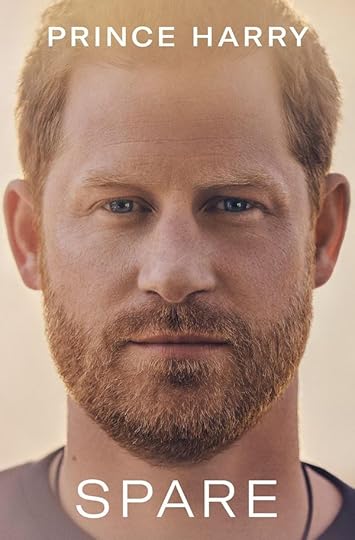
I’m not a particular fan of the British Royal Family, but there were two reasons I wanted to read this memoir.
Firstly, as we all know, it was written by a ghostwriter, J R. Moehringer. Moehringer is a well-known US journalist and author, having written his own acclaimed memoir The Tender Bar, which was made into a movie.
He’s also ghostwritten other celebrity memoirs, including Andre Agassi’s Open and Shoedog by Phil Knight, the founder of Nike. As a ghostwriter of memoirs myself, I was interested to see how Moehringer had written it.
I’m not sure whether it was intentional to make it public knowledge that Spare was ghostwritten - many, if not most celebrities, require their ghostwriters to sign a non-disclosure agreement. But even if that was the case, it’s the sort of thing that would have been hard to keep a secret for too long, given the level of media scrutiny that surrounds the Royal Family.
In his Acknowledgments, Prince Harry refers to ‘‘collaborator and friend, confessor and sometime sparring partner, JHM, who spoke to me often about the beauty and sacred obligation of memoir.’
The second reason I wanted to read it, is that I wanted to form my own opinion of it. When it was first published, and even before, there was so much commentary about it, based on leaked information, small excerpts taken out of context and other pundits’ opinions, many of whom had not read the book.
In my opinion, you’re not qualified to publicly discuss a book if you haven’t read it.
Predictably, Spare was an enormous bestseller, selling 3.2 million copies world wide in the first week, making it the fastest selling non-fiction book since records began.
And defying many pundits who predicted the book would be full of Harry moaning about his lot, it was far from that, and many thousands of readers have enjoyed it.
The book has gained a rating of 4.3 stars out of 5 on Amazon from over 100 000 ratings. Here are some review excerpts from major publications:
‘Juicy, humorous, resentful and sad. ’ (The Washington Post)
‘Unlike all the abuse spouted by its detractors, this book wasn’t scandalous, and it wasn’t self-aggrandizing. Instead, it was a very down-to-earth, very absorbing memoir by and about a person who, through no fault of his own, is living an extraordinary life.' (Forbes Magazine)
‘Prince Harry’s memoir is elegantly written and a triumphant vehicle for telling his side of the story.’ (The Standard)Spare Synopsis
Although this book is described as a memoir, it is more an autobiography. Although there isn’t much written about Harry’s childhood before he was 12, when his mother was killed, the rest of the book covers his whole life from then up to the present.
Although it’s not physically structured in this way, the book covers the three main parts of his life - losing his mother and his educational years, his time in the military, and meeting Meghan and the subsequent changes in his life.
There are many themes woven into this book, most of them already well-publicised. Harry’s grief over the death of his mother is a major and poignant part of his story.
The only way he could cope with it was to tell himself she had run away and was hiding, and would eventually come back. He didn’t shed a tear for many years.
There’s also his anger at the media, blaming them for Diana’s death because they were following her car at the time of the accident.
Although he has grown up under media scrutiny and accepts the inevitability of this, his hostility and bitterness are aimed at the insatiable paparazzi, who have no morals and will inflict whatever hurt and injustice is necessary to get a story.
He also feels betrayed by members of his family, especially Charles and Will, for not trying to understand his reasons for leaving the UK, and for Buckingham Palace’s symbiotic, and as he sees it, toxic relationship with the Press. He also reveals his battles with anxiety and depression as a teenager and young adult.
The structure of the book is quite unusual. There are 87 chapters and an epilogue. The chapters are of varying lengths, some of them only a few lines. There is no new page for each chapter and not even a space between them.
They just flow from one to the other, giving the impression that book is one long rambling narrative.
I’m not sure if that was the impression Moehringer was trying to give, but in any case, it doesn’t detract from the narrative.
In fact, it keeps you reading; it’s not easy to think, ‘I’ll just finish this chapter,’ because there’s no discernible chapter end. Maybe that was his dastardly plan!.
The book begins with a prologue, a meeting between Harry, William and Charles after the funeral of Prince Phillips. He is hoping they can sort out their differences, but they say they can’t understand why he left. ‘Here you go,’ he writes, indirectly dedicating the book to them.
The book seems to be a genuine attempt to allow the world, particularly Charles and William (whom he calls Willy) into his mind to understand his thoughts, behaviour and struggles over the years.CREATIVE LICENCEMoehringer, as you’d expect of an author of his calibre, has done an excellent job. It’s easy to read, and elegantly yet colloquially written, with a mix of short sentences, phrases masquerading as sentences, and thoughts interspersed with dialogue.
Prince Harry has made no secret of the fact that he is not much of a reader or writer, and Moehringer has taken the creative licence of imbuing the narrative with an eloquence and lyricism that Harry would not have used if he were writing the book.
In my opinion, that’s quite acceptable. While the task of the ghostwriter is to write the book in the client’s voice, if that voice is not particularly descriptive or expressive, it makes sense for the ghostwriter to tweak it, for the purposes of engaging the reader.POIGNANCY & HUMOURThere are some very poignant moments, particularly surrounding Diana’s death. When Charles comes to break the news to Harry:
Pa didn’t hug me. He wasn’t great at showing emotions under normal circumstances, how could he be expected to show then in such a crisis? But his hand did fall once more on my knee and he said, ‘It’s going to be ok.’
That was quite a lot for him. Fatherly, hopeful, kind. And so very untrue.
There’s also some humour, though I found some of it cringeworthy - for example, his account of losing his virginity to a woman who treated him ‘like a young stallion,’ and his account of getting frostbite on his ‘todger.’.
In the last part of the book, where he meets Meghan, whom he calls Meg, he describes first seeing her on a friend’s Instagram post. I’d never seen anyone so beautiful. Why should beauty feel like a punch to the throat?
And: For 32 years I’d watched a conveyor belt of faces pass by and only a handful ever made me look twice. This woman stopped the conveyor belt. This woman smashed the conveyor belt to bits.
This is pretty much the tone of this part of the book; Harry is besotted. His descriptions of his relationship with Meg, and her relationships with his friends and family, brought home to me how much of what we hear in the media about the royal family is totally fabricated.
In fact, there are many incidents in the book where this happens, and I felt real sympathy for him and any celebrity, who has to deal with the merciless determination of the paparazzi.
Overall, the book certainly gave me a new understanding of and considerable empathy for what Harry has undergone and his current circumstances - bearing in mind that it’s only his side of the story we are hearing, and that others who have a role in his life may have a completely different, and just as valid, perspective.
It also gives you a fascinating insight into the daily life of the royals and their rarefied and restrictive lifestyle - a life they’ve not chosen and take for granted, but not a life to which any ordinary, sane person would aspire. Thanks goodness I have never fallen in love with a prince and had that choice to make!
Of course, like all of us, Harry is not without his faults. There are many incidents or revelations in the book that can only be described as point-scoring, and at times he is hypocritical.
When talking about being accused of airing dirty laundry during media interviews, he claims that Charles and Camilla have done the same, by feeding the media information that puts them in a good light, and telling lies about Harry to take the heat off them.
Consequently, he might think it gives him the right to do the same, but then he has to accept that he’s stooped to the same level as those he’s accused.

In his ‘About the Author’ blurb on Amazon, Prince Harry describes himself as ‘ husband, father, humanitarian, military veteran, mental wellness advocate, and environmentalist.
He resides in Santa Barbara, California, with his family and three dogs.’
Here’s an interview with Stephen Colbert on the Late Show after the release of Spare.
 Prince Harry & Meghan Markle
Prince Harry & Meghan MarkleHere’s the infamous interview on Oprah with Prince Harry and Meghan Markle.

Click to play
Spare Review ConclusionI recommend this book if you want to find out more about the truth (at least, Harry’s truth) behind the hype. In its essence, it’s a coming-of-age story about a man dealing with grief and loss, and his quest for love and acceptance.
At 416 pages in print, it’s a hefty book and makes a good doorstop. But it doesn’t drag and even though you know how it ends, it keeps you absorbed all the way.
 Buy On Amazon Now! Other Books By J.R. MoehringerLife Or Death
Buy On Amazon Now! Other Books By J.R. MoehringerLife Or Death
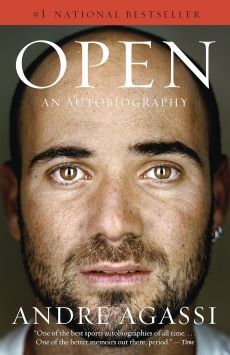 The Tender Bar
The Tender Bar
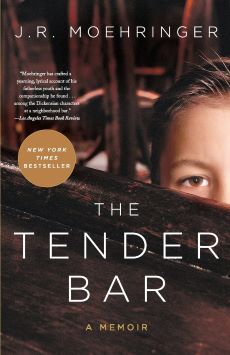 Shoe Dog
Shoe Dog
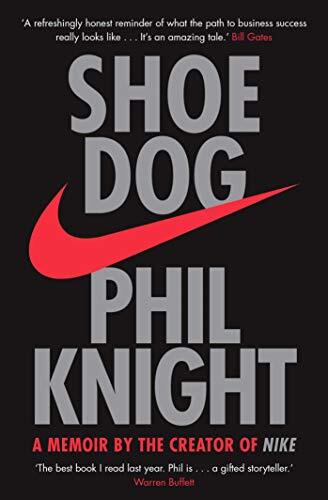
Read more of Robin's ghostwriter reviews here. For more memoir, self-development and other book reviews, click here.
The post Spare Prince Harry Review appeared first on Robin Storey.
September 6, 2023
Why Are Memoirs So Popular?
This post was written by Robin Storey.
Have you ever thought to yourself, 'Why are memoirs so popular?'
They’ve been increasing steadily in popularity since the 1990s, and if it’s not a genre that appeals to you, you may well be wondering why.
I love reading memoirs (as a ghostwriter of memoirs it would be strange if I didn’t!), and they have always been popular with a certain niche of readers.
But there are many reasons why memoirs now appeal to a much broader audience.
We all love to know how other people live; reading memoirs gives us an insight into other lives that may be very different to ours, particularly if the author was brought up in another era, country or culture.
If the memoir is well-written, we immerse ourselves in the author’s life, so each memoir we read becomes a different life we’ve led - vicariously.
Memoirs teach us to appreciate our differences and foster empathy, compassion and understanding. The world could do with more of these qualities.
Maybe it should be compulsory for all world leaders to read memoirs!
Memoirs in this category include:
I am Malala: The Girl Who Stood Up for Education, by Malala Yousafzai, the girl who stood up to the Taliban and was shot by them.
The Happiest Man on Earth, by Eddie Jaku, who spent seven years in a German concentration camp in WW11.
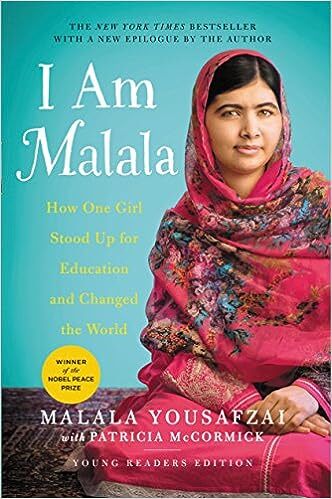
By Malala Yousafzai
The Happiest Man On Earth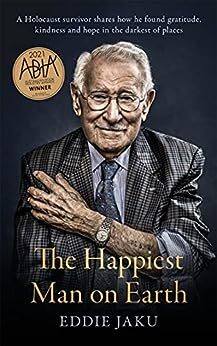
By Eddie Jaku
Celebrity Memoirs No Longer Interest UsOnce upon a time, the only memoirs that were published were those of celebrities, because they were guaranteed to sell.
This was in the days when there was still a mystique attached to being a celebrity and their every movement wasn’t reported by the press.
Buying a celebrity’s memoir was the only way you could find out interesting tidbits about their lives, or their stories about other celebrities.
These days, with 24-hour news and social media, we’re inundated with the day-to-day activities of celebrities, so their memoir is not going to tell us anything we haven’t already seen and heard.
And the emergence of celebrity culture means that celebrities are often people who are wealthy or high status, but haven’t achieved anything worth reading about.
As Helen Garnons-Williams, publishing director of 4th Estate, says in an article in The Guardian, ‘Celebrities aren’t inspiring any more, and people don’t want to be them.
What readers want is people who are normal and who they feel they can trust.’
We want to read stories by people we can relate to; everyday people who, nevertheless, have had exciting adventures, achieved big things or overcome great challenges.
Memoirs in this category include:
Wild: Lost and Found on the Pacific Crest Trail, by Cheryl Strayed, about her dangerous 1000 mile solo hike.
The Girl Who Fell From the Sky, by Emma Carey, who became a paraplegic after a skydiving accident and created a new life for herself..
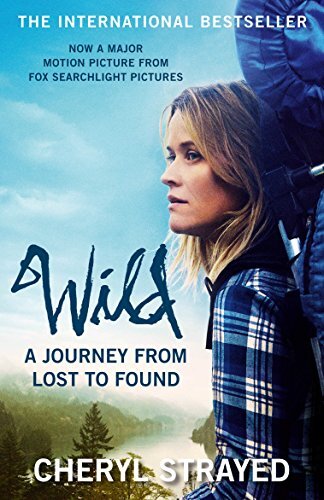
By Cheryl Strayed
The Girl Who Fell From The Sky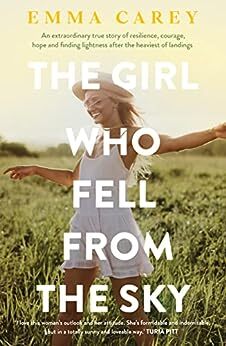
By Emma Carey
Memoirs Inspire And Motivate UsThere are few things more inspiring than reading a memoir by someone who has overcome the very challenge you’re grappling with – not only do you feel less alone, but you’re motivated to follow in their footsteps.
If they can do it, you reason, I can too!
Even when the memoir is not about a topic that is relevant to your situation, you can still find solace in it or be encouraged to take a giant leap into the unknown.
Memoirs in this category include:
The Resilience Project: Finding Happiness Through Gratitude, Empathy and Mindfulness by Hugh van Cuylenburg, about his life-changing realization when he was volunteering in India.
How To Fail, by Elizabeth Day, about the many times she has failed in her life and what it has taught her.
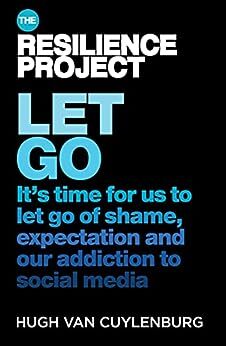
By Hugh van Cuylenburg
How To Fail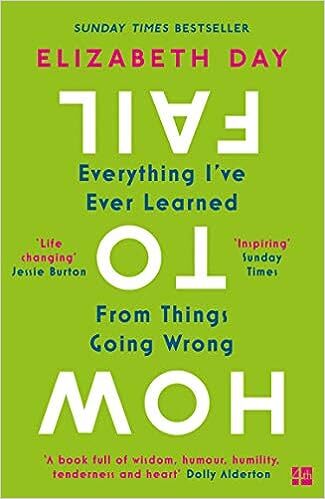
By Elizabeth Day
Memoirs Give Us HopeIn this world of 24/7 news, much of which is depressing or downright tragic, we have a craving for good news, to feel uplifted.
And let’s face it, despite the doomsayers, there are positive things happening all the time all over the world, and many reasons for us to feel happy and grateful.
This is why memoirs by teachers, nurses, police officers and firefighters are popular; they’re ordinary people doing extraordinary jobs, and making an impact on people’s lives every day.
As Helen Garnons-Williams says, in this Guardian article, ‘People want to read about good people doing good things.’
Memoirs in this category include:
The Language of Kindness – A Nurse’s Story by Christie Watson, about her 20 years as a hospital nurse.
Against All Odds: The inside account of the Thai cave rescue and the courageous Australians at the heart of it, by Craig Challen and Richard Harris, about their heart-stopping, 18-day rescue of 12 Thai boys from a flooded cave.
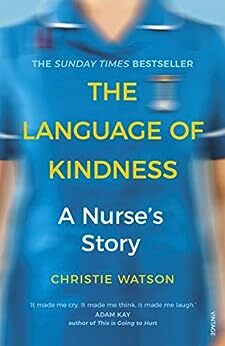
By Christie Watson
Against All Odds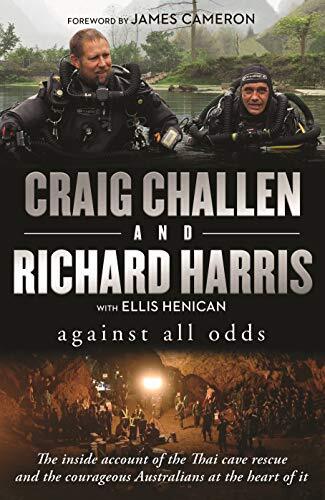
By Craig Challen & Richard Harris
What's Your Choice?Maybe that memoir you’ve aways wanted to write falls into one of these categories.
Whatever your personal choice, it's easy to see what makes memoirs so popular, particularly in today's market. I'd love to know what type of memoir is your favourite in the comments below.
If you’d like to talk to me about writing your memoir, please contact me below and I’ll reply as soon as I can.
Click the button below to find out more about having your story ghostwritten and to book an appointment with me.
book now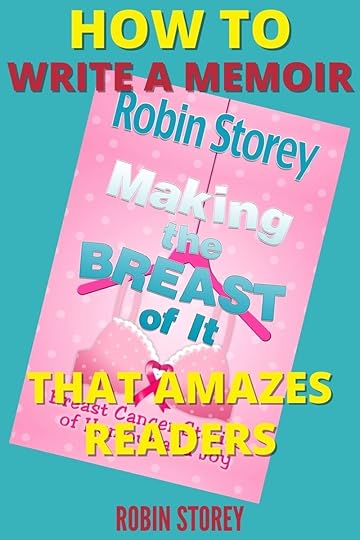
The post Why Are Memoirs So Popular? appeared first on Robin Storey.
June 18, 2023
Fast Draft Your Memoir Rachael Herron Review
This post was written by Robin Storey.
Fast-Draft Your Memoir: Write Your Life Story in 45 Hours by Rachael Herron, a best-selling memoirist, contains all the basics you need to know about planning and writing your memoir.
‘Can I really write my life story in 45 hours?’ you might well be wondering.
Which, depending on how many hours a day you write, could be as little as a week or two.
The important word here is ‘write.’ Rachael is a big proponent of planning your memoir.
She says that if you have a plan in place on how you’re going to structure and write it, you can indeed write the first draft of your memoir in 45 hours.
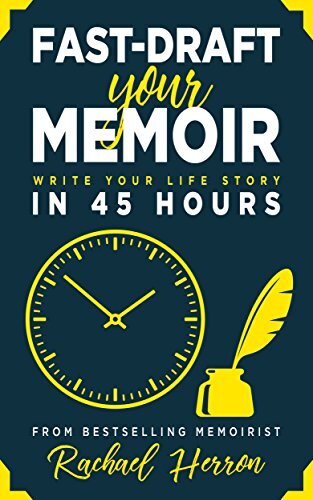 Reviews For Fast-Draft Your Memoir
Reviews For Fast-Draft Your MemoirThis book has 380 ratings on Amazon and Goodreads, with an average of 4.6 stars out of 5.
Here are a few of the comments:
‘Rachael Herron resonates with our audience, and not just because she knows her stuff--she does--or because she's hilarious--she is--but because her honesty and earnestness come through in all her messaging. ’ (Samantha Sanders - Writers Digest)
‘Not only is it a brilliant approach, but it's well written, witty and wise, easy to read, and inspiring, with Rachael's lyrical, heartwarming vignettes providing helpful examples. If you are considering writing your personal story--don't try it without grabbing this book!' (Best-Selling Author - Toby Neal)
‘Of all the how-to-write-memoir books I've purchased, checked out, or perused and put back, this book offers by far the most coherent, compact, inspiring, and clear advice.’ (S.Day Conner)Fast-Draft Your Memoir Synopsis
This book could be subtitled ‘Everything You Need To Know About Writing Your Memoir But Were Afraid To Ask.’ For a relatively short book, (218 pages in print), it packs a powerful punch.
The book follows a clear and logical progression, starting with necessary basic knowledge such as what is a memoir, reasons not to write your memoir and types of memoir. (See my blog post Memoir Writing: Why Tell Your Story?)
Then we get into the practical, hands-on part. This starts with planning, complete with practical exercises to help you drill down to the theme and essence of your memoir.
Included is the most important part of the planning process, the outline, a detailed blueprint of each chapter and the scenes within it.
Herron then goes on to discuss story structure and character arc. Even though memoirs are true stories, they still need to follow the traditional methods of storytelling to attract and maintain the reader’s interest.
So the story needs to have tension that builds, a climax and a resolution at the end, as well as you, as the main character, undergoing some sort of transformation during the story. Whether we’re aware of it or not, we instinctively look for these elements when we read any type of story.
Then we’re into the nitty-gritty – writing the book. Herron talks us through the perennial issues of carving out writing time, getting rid of distractions, keeping yourself motivated and busting through your worries. Then we’re on the home run – tips on revising and editing, and finally, P (Publishing) Day!.
A big part of this book’s appeal is the author’s writing style. Her information and ideas are expressed in a clear and conversational style and her author’s voice shines through – warm, witty and down to earth.
She understands what it’s like being a first-time memoir writer because she’s been there herself – she tells us about her writing journey in the introduction.
Reading the book is like sitting down with your big sister and having a conversation with her about memoir writing over a cup of coffee. (Or a glass of wine, depending on the predilections of your sister).
And like a big sister, she’s not afraid to use some tough love when she thinks it’s needed. Hence the chapter titles Write the Damn Book and How To Get Out Of Your Own Way and Write.
The next chapter after Story Structure and Character Arc is called Do I Have To? It begins:
‘I just want to tell my story. Is that so wrong? Do I really have to think about this crap?”
‘Yes, this stuff is hard. Like I said, structuring your memoir is one of the hardest things to do when working in this genre. This is where my students struggle the most.’
She’s not shying away from the fact that it’s hard, and she’s saying, neither should you.
In the chapter on Worry Busting, which deals with some common problems, one of them is:
‘I’ve started but I’ve lost my mojo. I don’t think I’ll get it back.’
Herron’s reply illustrates her vibrant turn of phrase:
‘Brute force, my friends. Brute force…Bash the words out. Claw them out of your soul with a pickaxe. Promise yourself the best scotch you can afford if you can just finish five more scenes. Get a writer friend to meet you and while you’re pounding out your quad-shot venti latte, tell him he can’t let you go to the bathroom until you’ve written a thousand words.’
If that doesn’t motivate you, nothing will!
As I said earlier, Herron covers all bases in this book. There’s a chapter on Pro Tips, including dialogue, point of view and using the senses, advice on curly issues such as family conflict and truth-telling, and she also shares her wisdom on self-care if writing your memoir triggers distress or trauma.
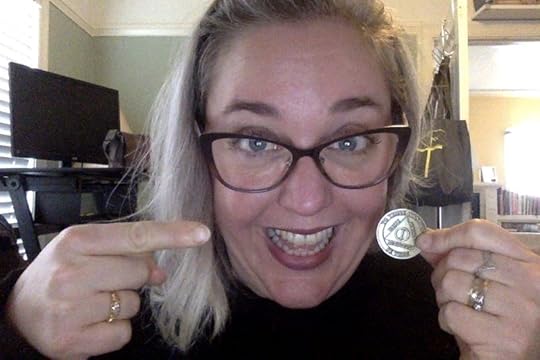
Rachael Herron Author of Fast-Draft Your Memoir
Rachael Herron has published more then two dozen books in various genres – thrillers, mainstream fiction, feminist romance, memoir and non-fiction about writing.
She has an MFA in writing and teaches writing at US universities.
She is a dual US and New Zealand citizen and lives in Wellington, New Zealand.
You can find out more about her and her books here. https://rachaelherron.com/
 Rachael Herron Podcasts
Rachael Herron PodcastsIn this episode of Rachael's podcast, How Do You Write? Herron discusses the book...
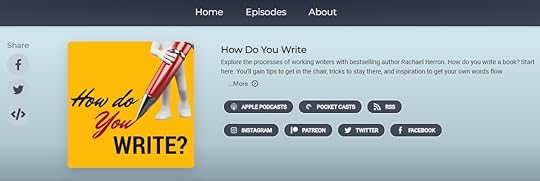
And here’s a conversation with her on the podcast D2D (Draft 2 Digital) Spotlight.
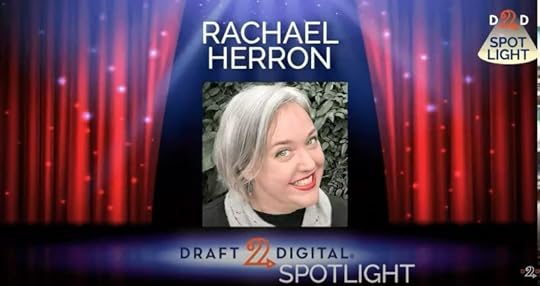 Fast-Draft Your Memoir Review Conclusion
Fast-Draft Your Memoir Review ConclusionEven though this book is aimed at beginner memoir writers, it’s still a valuable resource for those who are more experienced.
I find it useful as a book that has all the necessary information about memoir writing in the one place, and I can dip into it when I need to refresh my knowledge or spark new ideas.
If you are a first-time memoir writer, I would certainly recommend this book as a must-have tool in your writing arsenal.
After reading this book, I also read Herron’s memoir A Life In Stitches – Knitting My Way Through Love, Loss and Laughter.
Yes, it’s obviously a memoir about knitting, but as someone whose only yarn creation was a scarf for my teddy bear, (a very long one, because I didn’t know how to cast off), I can attest that you don’t have to be a knitter to appreciate it.
It’s a tribute to Herron’s skill as a writer that it’s a thoroughly enjoyable and engaging book.
It has earned even more good reviews than Fast Draft Your Memoir, with 905 reviews and a 4.3 star rating.
 Buy On Amazon Now! Other Books By Rachael HerronA Life In Stitches
Buy On Amazon Now! Other Books By Rachael HerronA Life In Stitches
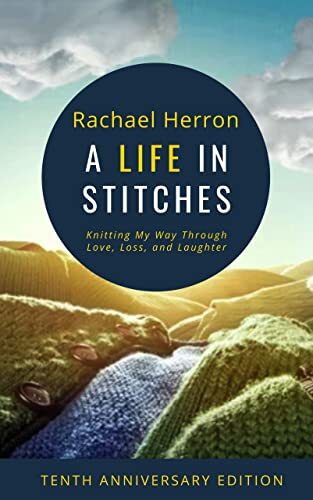 Abigail's Shop
Abigail's Shop
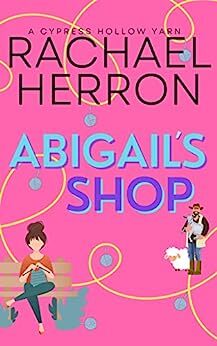 The Firefighters
The Firefighters
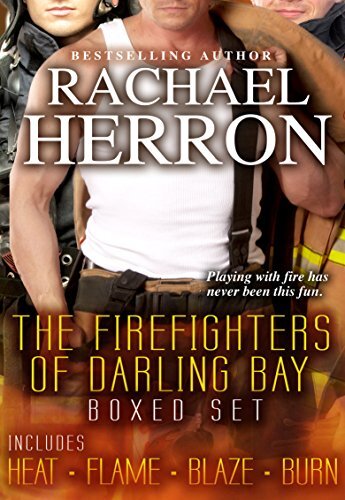
To see all of Robin's non-fiction book reviews, click here.
The post Fast Draft Your Memoir Rachael Herron Review appeared first on Robin Storey.


